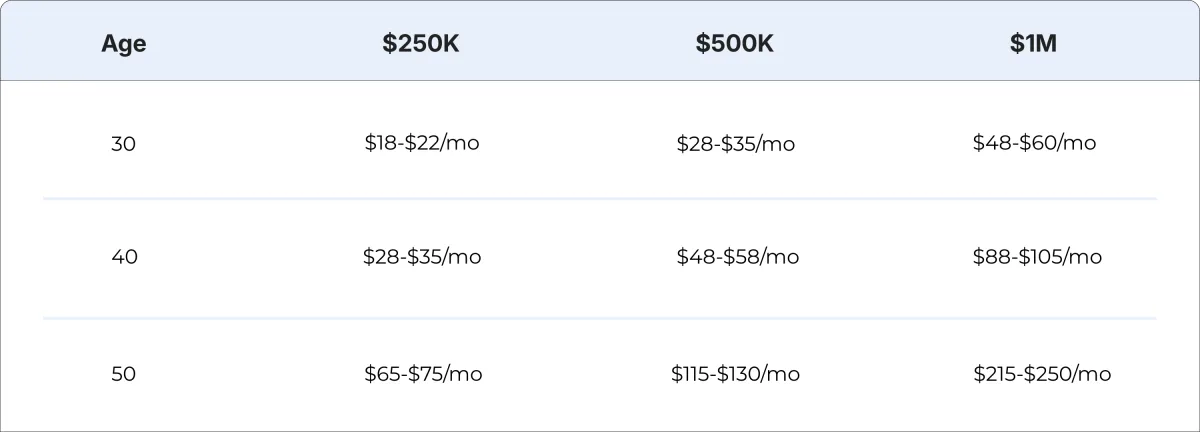
Life Insurance Quotes In
Nova Scotia & New Brunswick:
Personalized By
A Real Advisor
No Automated Quotes. No Pressure. Just simple, honest guidance to help you protect what matters most.
Local support for Nova Scotia & New Brunswick families
Access to multiple top Canadian insurers, so you get the most competitive pricing
Fast turnaround personalized quotes typically within 24 hours
See How Affordable
Life Insurance Can Be
In Nova Scotia & New Brunswick
Rates vary by age, coverage amount, and gender at birth. Here’s a quick look at typical sample rates so you know what to expect. (Your personalized rate may be higher or lower depending on your health and goals.)
Male, Non-Smoker
Approximate Monthly Rates

Female, Non-Smoker
Approximate Monthly Rates

These sample rates are based on non-smokers in good health and are provided for general information only.
Your actual premium will depend on your health history, lifestyle, insurer guidelines, and coverage goals. Pat McIver will prepare a personalized quote for you - no pressure, no obligation.
We Work With Canada's
Top Insurance Providers
We compare multiple insurers to find the best fit for your needs.





Rated 5/5 by Families Across
Nova Scotia & New Brunswick
Real clients. Real experiences. See why so many families trust McIver Insurance for honest, pressure-free guidance.
Hi I'm Pat.
My job is to make
life insurance easy
After two decades in the industry, one thing became clear: most families don’t need more insurance “products” - they need someone who actually listens. That’s why I take a simple, personalized approach.
I’ll walk you through your options, help you understand what matters, and make sure you’re never pressured into anything you don’t need.
I’m proud to support families across Nova Scotia and New Brunswick with honest, dependable advice.
Real conversations, not sales pitches
Straightforward, personalized recommendations
5-star Google reviews from New Brunswick &
Nova Scotia clients

Frequently Asked Questions
How much does life insurance typically cost?
The cost depends on your age, coverage amount, and health.
Most families are surprised at how affordable it actually is - many plans start under $20–$30 per month for healthy applicants.
Once you answer a few questions, I’ll send you a personalized quote with clear options and no pressure.
Do I need a medical exam?
Most term life insurance applications don’t require a medical exam, and many can be approved with simple health questions.
How long does it take to get my quote?
We send all personalized quotes within 24 hours (or 48 hours on weekends).
What happens after I receive my quote?
You’ll get an email with your personalized options, and I’ll follow up to answer questions.
There’s no obligation and no pushy sales approach — just genuine guidance to help you choose the right protection.
Does getting a quote affect my credit or anything else?
No. Requesting a life insurance quote has zero impact on your credit and is completely risk-free.
What if I’m not sure how much coverage my family needs?
That’s normal - most people aren’t sure at first.
I’ll walk you through it based on your goals, budget, and family situation, then show you a few clear and straightforward options.
I have a medical condition, can I still qualify?
Often, yes. Many insurers offer flexible options for different health situations. Pat will guide you toward the right carriers
Why should I work with a broker instead of getting insurance from my bank?
As a broker, I’m able to compare multiple top Canadian insurers - not just one company.
This means you get better pricing, better options, and advice that’s actually tailored to you, not to a single product.

